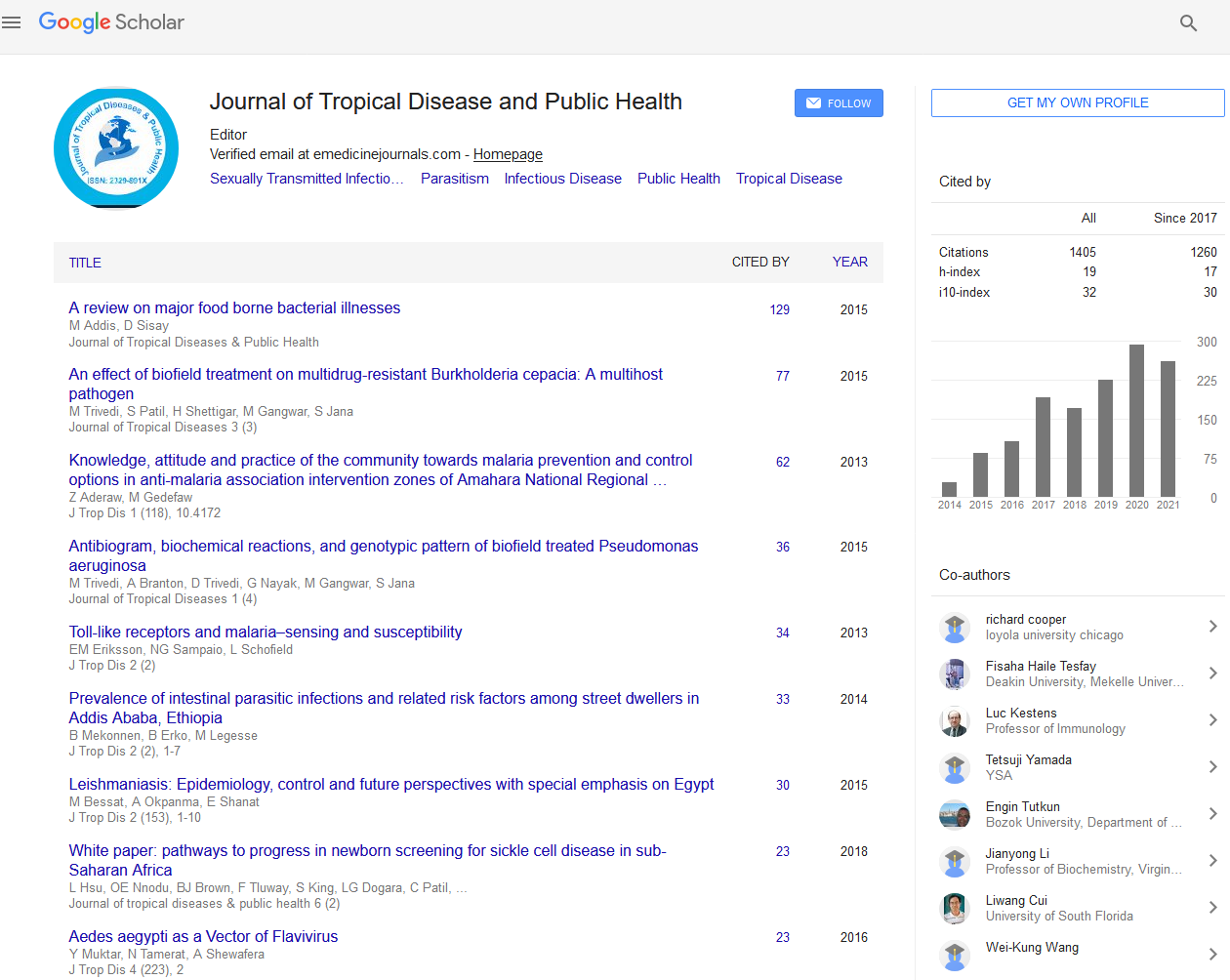Indexed In
- Open J Gate
- Academic Keys
- ResearchBible
- China National Knowledge Infrastructure (CNKI)
- Centre for Agriculture and Biosciences International (CABI)
- RefSeek
- Hamdard University
- EBSCO A-Z
- OCLC- WorldCat
- CABI full text
- Publons
- Geneva Foundation for Medical Education and Research
- Google Scholar
Useful Links
Share This Page
Journal Flyer

Open Access Journals
- Agri and Aquaculture
- Biochemistry
- Bioinformatics & Systems Biology
- Business & Management
- Chemistry
- Clinical Sciences
- Engineering
- Food & Nutrition
- General Science
- Genetics & Molecular Biology
- Immunology & Microbiology
- Medical Sciences
- Neuroscience & Psychology
- Nursing & Health Care
- Pharmaceutical Sciences
Abstract
Experience of Implementation of Safe Motherhood Program with Traditional Health Practitioners in Central Zone (Singida and Dodoma region) of Tanzania
The aim of the paper, through gray literature review, is to show the impact on training traditional health practitioners in reducing maternal mortality in rural areas with specially focus to traditional birth attendance in Central Region of Tanzania. Traditional birth attendances were trained on safe delivery and prompt referral to formal health services for cases that were beyond control. The impact of training are improved save deliveries, increased collaboration with formal health practitioners which is expected to reduce maternal mortality and increase referral to formal health facilities. Also it helped to change traditional birth attendance attitudes towards female circumcision. Traditional health practitioners are potential resources for reducing maternal mortality including improving health care in rural settings in resource poor countries. What is needed is to identify them, map their distribution and empower by training on basic primary healthcare services related to child delivery and after delivery. The Central region case study is a typical case of how traditional health practitioners can be full utilized in order to improve health care. Traditional health practitioners exist in rural areas and play an important role in healthcare and should be taken on board for improvement of health in both rural and urban areas.


